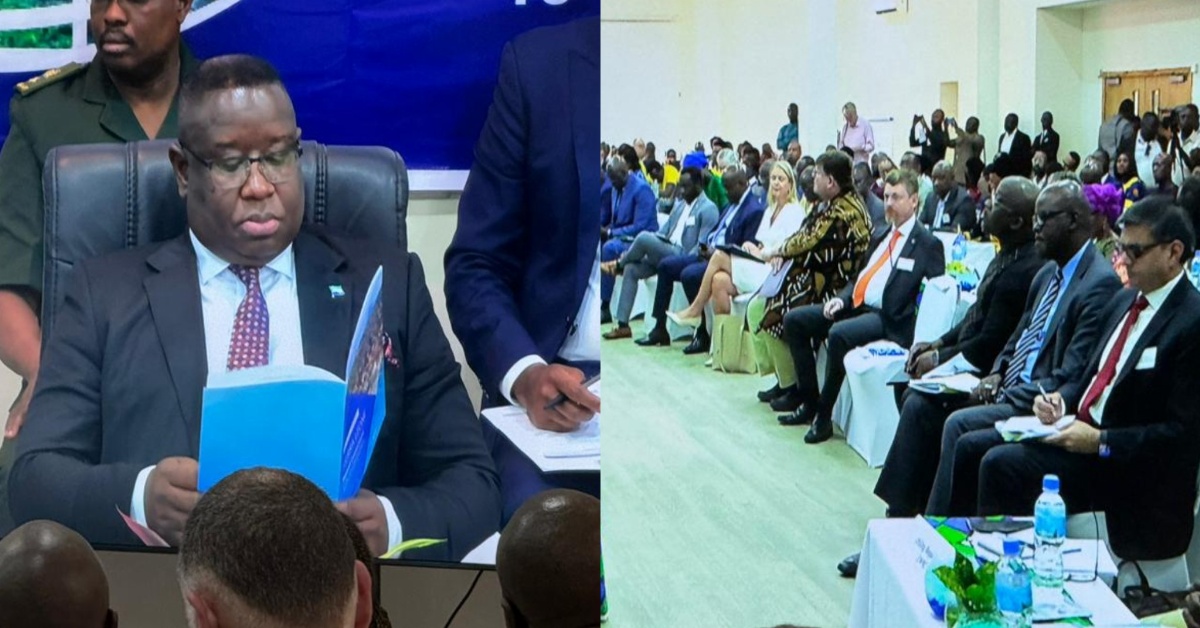Sierra Leone’s President Julius Maada Bio has given an upbeat assessment of Sierra Leone’s energy future and potentials in the face of existing challenges while addressing an Energy Sector Roundtable Conference in Freetown.
“First, I wish to express my gratitude to the Minister and team for putting together another Energy Sector Roundtable Conference with the theme:’ Countdown to 2030:Sustainable Energy for All’.
“Ladies and gentlemen, a sustainable, reliable and adequate energy supply is a critical contributor to the transformation and development of any society. And bear it in mind that sustainable energy for all by 2030,especially renewable energy, is a possibility in Sierra Leone, “President Bio said.
He however stressed that transitioning these resources into usable energy for domestic and commercial purposes was a daunting and costly one which would require the efforts of all local and international stakeholders.
President Julius Maada Bio said his government was committed to providing sustainable energy for all, noting that the theme of the conference resonates with the structure, spirit and the intent of his government’s Medium-Term National Development Plan that was recently launched.
“Sierra Leone needs affordable energy; and not one that is saddled with debt, incapacity of EDSA and EGTC, and reducing citizens to the never-ending cycle of energy poverty. This is not good for our people; it is not good for us as a government,” he bemoaned, while also sounding upbeat that with ongoing efforts, Sierra Leone was on course, albeit painstakingly, to meeting goals set.
President Bio concluded by saying that, two years ago, he had outlined critical initiatives necessary for progress in Sierra Leone’s energy sector, adding that those initiatives remain abundantly relevant today.
He called on the conference to reiterate issues like financing of the energy sector, regional interventions, regional emergency solar power interventions, the MCC Compact, and the rural electrification and mini grids.
Energy Minister, Alhaji Dr. Kanja Sesay, said the overall objective of the Energy Sector Roundtable Conference was to provide a platform for discussion among Government of Sierra Leone, technical and financial development partners, civil society and the private sector on the status of our sector for both electricity access and clean cooking goals.
Dr. Sesay spoke about a variety of policies and projects which his Ministry had put in place and implemented, noting that the distribution network in Freetown had undergone significant upgrade and expansion under the ESURP, while also talking about several developments in generation, transmission metering, mini grids and policy frameworks.
World Bank Country Manager, Dr. Abdu Muwonge, thanked participants and expressed optimism at the prospects of the conference positively addressing critical issues of energy in the country.
British High Commissioner, Lisa Chesney, said the Ministry had done extremely well in improving access to energy, noting that Sierra Leone was ahead of many countries in the subregion in terms of access to energy.
With the energy sector and the Feed Salone agenda being inextricably linked, reforms continue in the sector.


 Post a comment
Post a comment








